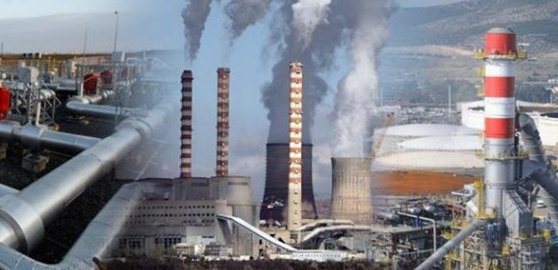The arrival of 2018 promises to bring about big changes to all the local energy sector’s major fronts – electricity, natural gas, renewable energy and hydrocarbons – and radically reshape these sub-sectors by the time the year is out.
The government is expected to have finalized a national energy plan within the year, officially presenting the direction of policies pursued.
It should be a busy year for energy-sector privatizations. An international tender offering 66 percent of DESFA, the natural gas grid operator, is already well in progress. The launches of privatizations concerning ELPE (Hellenic Petroleum), DEPA (Public Gas Corporation) and PPC (Public Power Corporation) are expected this year.
Energy infrastructure developments concerning natural gas pipelines, a prospective LNG terminal in Alexandroupoli, northeastern Greece, as well as an underground gas storage facility in the Kavala area, northern Greece, are also expected.
The bailout-required sell-off of PPC units, a procedure already underway and representing 40 percent of the power utility’s overall lignite capacity, promises to reshape Greece’s electricity market.
The establishment of an energy exchange, another bailout requirement incorporated into the Target Model, a process entailing the local electricity wholesale market’s harmonisation with EU law, promises to significantly alter how the electricity market operates.
The end of PPC’s monopolization of the country’s lignite sources, combined with the utility’s required retail electricity market share contraction, will clearly change the market. Bigger electricity amounts to be offered to independent suppliers through four NOME auctions in 2018 promise to reshuffle market shares. NOME auctions were introduced slightly over a year ago to offer independent suppliers access to PPC’s lignite sources.
The new flexibility remuneration mechanism, new demand response mechanism (interruptability) auctions, following a two-year extension, will also lead to market changes. The demand response mechanism enables major industrial enterprises to be compensated when the TSO (ADMIE/IPTO) requests that they shift their energy usage by lowering or stopping consumption during high-demand peak hours so as to balance the electricity system’s needs.
In the natural gas sector, DEPA, the gas utility, will need to limit its dominant market presence. The utility is currently engaged in negotiations with its co-shareholders in the EPA Attiki and EPA Thessaloniki-Thessaly retail ventures. The Greek government is supporting DEPA’s withdrawal from EPA Thessaloniki-Thessaly and an increased share of EPA Attiki. Shell, the holder of a 49 percent stake in EPA Attiki, has indicated it wants to withdraw. Italy’s ENI holds a 49 percent share in EPA Thessaloniki-Thessaly. DEPA is the majority shareholder in both ventures with 51 percent stakes.
A 9 percent sales increase reported by DEPA for the nine-month period of 2017, upbeat forecasts for the utility’s performance in 2018, as well as heightened trading activity anticipated from Prometheus Gas and M&M Gas promise to increase the market’s size and competition.
Combined electricity-and-gas packages are being prepared by retailers now that the gas and electricity markets have been liberalized. PPC, the main power utility, is preparing to enter the natural gas market while major independent electricity retailers have launched campaigns offering customers combined electricity-and-gas packages.
The new year also promises significant RES market changes. New renewable energy projects planned for development are expected to enter the RES market with new and more competitive terms.
The European Commission has already endorsed a Greek plan for new RES auctions. These are expected to end the stagnancy experienced by the local sector over recent years and also boost RES capacity.
As for the hydrocarbons sector, foreign investors are expressing a rekindled interest in Greece following recent discoveries of deposits in the east Mediterranean and Egypt. Petroleum giants such as ExxonMobil, Total and Repsol appear interested in taking part in hydrocarbon exploration initiatives, seen intensifying over the next few years.
The Greek government announced two international tenders last year offering offshore blocks in the Ionian Sea and south and southwest of Crete. Progress is expected in 2018.





